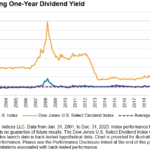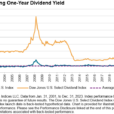
 Image Source: DepositPhotosThe Nigerian Naira (NGNM) has faced significant devaluation pressures in recent years. Naira devaluation refers to the official lowering of the Naira’s value in relation to another currency, usually the US Dollar. especially compared to the US dollar. There are various economic factors that the Central Bank of Nigeria considers before doing this. Whether it finds its footing and rebounds or continues its descent is a question that weighs heavily on the minds of Nigerians and investors alike. This article looks into whether the current position of the Naira will improve or not. Will the Nigerian Naira rebound from its current bottom? That is the question we wish to answer. Let’s jump in. Understanding the Devaluation of The NairaAs we mentioned, the devaluation of the Naira involves the Central Bank of Nigeria intentionally lowering the value of the Naira in response to several economic factors. But this happens to the Naira far too often for a country that has the second-largest economy in Africa. The devaluation of the Naira can have various effects on the trading activities of forex traders. For starters, traders may experience their accounts falling in value after making a deposit with some of the best forex brokers in Nigeria. It can also cause some increased volatility for traders who love to trade pairs that involve the Naira. At the moment, traders can attest to the volatility witnessed in the Naira. Today, the Naira can be considered a fairly weak currency by many experts. Here are some of the factors that contribute to the Naira’s current weakness:
Image Source: DepositPhotosThe Nigerian Naira (NGNM) has faced significant devaluation pressures in recent years. Naira devaluation refers to the official lowering of the Naira’s value in relation to another currency, usually the US Dollar. especially compared to the US dollar. There are various economic factors that the Central Bank of Nigeria considers before doing this. Whether it finds its footing and rebounds or continues its descent is a question that weighs heavily on the minds of Nigerians and investors alike. This article looks into whether the current position of the Naira will improve or not. Will the Nigerian Naira rebound from its current bottom? That is the question we wish to answer. Let’s jump in. Understanding the Devaluation of The NairaAs we mentioned, the devaluation of the Naira involves the Central Bank of Nigeria intentionally lowering the value of the Naira in response to several economic factors. But this happens to the Naira far too often for a country that has the second-largest economy in Africa. The devaluation of the Naira can have various effects on the trading activities of forex traders. For starters, traders may experience their accounts falling in value after making a deposit with some of the best forex brokers in Nigeria. It can also cause some increased volatility for traders who love to trade pairs that involve the Naira. At the moment, traders can attest to the volatility witnessed in the Naira. Today, the Naira can be considered a fairly weak currency by many experts. Here are some of the factors that contribute to the Naira’s current weakness:
Can the Naira Rebound?Well, it can be hard to predict the exact movement of a currency. However, if the Naira’s value is to bounce back, it will depend on a couple of factors. These include:
There are two scenarios that can occur and affect the movement of the Naira. First, all or some of these conditions could work in favour of the Nigerian economy. In this case, the Naira would experience a gradual appreciation, stabilizing its value and boosting investor confidence. However, if most of all of the conditions work against the Nigerian economy, the Naira would experience a further decline.As such, traders should stay keen on these economic indicators and others to predict the movement of the Naira going forward. They act as powerful gauges for the direction that most currencies will take. ConclusionThe future of the Nigerian Naira remains uncertain. The interplay of global oil prices, domestic policy choices, and investor confidence will ultimately determine its trajectory. While challenges are there, opportunities exist for a strong recovery. Notably, the Nigerian government can create policies that promote a more stable and attractive environment for the Naira to regain its footing.More By This Author:How Can TradingView Help Analyze Utility Tokens
Green Bonds: Financing A Sustainable Future
How AI Will Impact The World Of Trading In 2024 And Beyond















